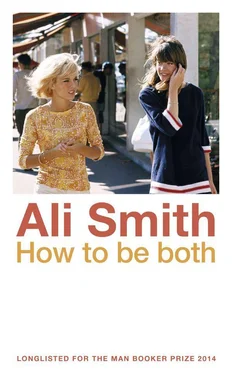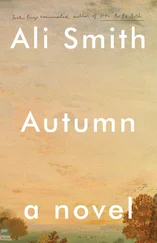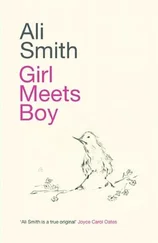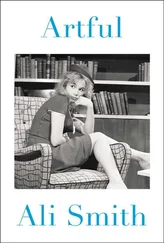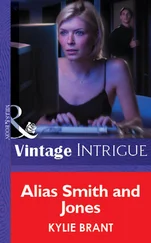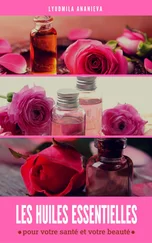I am 18 years old: I have high hopes cause my father has persuaded the most exciting new young master the town has seen for a long time to look over some of my pictures and has gone to the municipal palace with a great many of them to show him (who isn’t new at all, who’s been working as a tapestry and fabric designer and painter of horsecoats and pennants there for a decade and making a name too for his pictures which are near-shocking things in their toughness, all roots and stones and grimaces and all of an astonishing arrogance, so much so that to look at them for any time will fill you with a kind of discomfort and distaste: more, Borse, the newest Marquis, has tired of his old masters, good Bono and Angelo, who weren’t his but his half-brother’s court painters, and word’s gone round that this new painter has caught his eye and has received many gifts): my father has decided he’d be a good man to know and that a court job could be mine easy as anything if I were apprenticed to him: I am home in the workshop my father made for me in our yard from sticks and hanging canvases, shelter from the wind but full of plain daylight, good for painting: it’s a place both flimsy and serviceable and I haven’t had to re-erect it this morning (my brothers like to knock the sticks out of the ground at night when they’ve come home from work or drinking, but last night they forgot to, or were kind enough not to) and I’m hard at work on a picture as large as the canvases that make the walls hung round me, I am picturing a story I remember from childhood: a musician has an argument with a god about whose music is better: the god wins the argument and the musician has to pay the price, which is to be skinned and hand over the pelt to the god as a trophy.
It’s a story I’ve puzzled over almost all my years: right now though I’ve found the way to tell it: the god stands to one side, the unused knife slack in his hand: he has an air near disappointment: but the inner body of the musician is twisting up out of the skin in a kind of ecstasy like the skin’s a thick flow of fabric coming rich in one piece off the shoulder and peeling away at the same time from the wrists and the ankles in little pieces like a blown upward snow of confetti: the body appears through the skin’s unpeeling like the bride undressing after the wedding: but bright red, crystal red: best of all the musician catches the skin over the very arm it’s coming off and folding itself, neat.
I hear someone behind me: I turn: a man is standing between the folds of canvas that make the door of my workshop: he’s quite young: he is adorned: his clothes are very beautiful: he himself inside the clothes is also good on the eye and he has an arrogance that actually has a colour: I will try quite a few times after this to mix that colour but will never be able to get it.
He is looking at my painting: he is shaking his head.
It’s wrong, he says.
Says who? I say.
Marsyas is a satyr and therefore male, he says.
Says who? I say.
Says the story, he says. Say the scholars. Say the centuries. Says everyone. You can’t do this. It’s a travesty. Says me.
Who’re you? I say
(though I know quite well who he is).
Who am I? Wrong question, he says. Who are you? Nobody. No one will ever pay you, not money, for this. It’s worthless. Meaningless. If you’re going to paint a Marsyas, Apollo has to win. Marsyas has to display ruin and be defeated. Apollo is purity. Marsyas has to pay.
He is staring at the picture with, is it a kind of anger? He comes up closer and rubs the lower corner roughly with a thumb and first finger.
Hey —, I say
cause I am annoyed at his touching it.
He acts like he can’t hear: he examines the fields and fencing and trees, the far houses, the rock formations, the people going about their day and the nothing unusual happening, the boys throwing stones in the river for a dog to chase, the woman tramping the cloth in the barrel, the birds in flight, the clouds going where they’re blown and the tree to which the musician was to be bound by ropes and from which the musician has twisted free.
He’s as close to the surface of the painting as he can get, so close it’s as if his eyelashes might be brushing the twigs and leaves of the crown on Apollo: he puts himself equally close to the place where the skin of the musician’s face and neck, all that’s left still attached to the body, meets the red of the underflesh: he steps back, steps back again, steps back again so he’s level with me: he looks down at the colours on my table.
Who made your blue? he says.
I did, I say.
He does a shrug like he doesn’t care who made that blue: he lifts his eyes and looks back at the picture again: he sighs: he gives a little disapproving shake of the head and then he disappears again through the opening in the airy walls.
2 nights later the painting went: I came out in the morning, the workshop was wrecked and ruined as usual but cause I knew my brothers liked their fun I always stored the tools and things that mattered well away: I went down to my mother’s storeroom: the overgrown grass on the path down the field had been stamped back by more feet than mine: its door was open: the painting was gone and the roll of sketches too (though my father had taken everything else with him to the palace where no one had had the time to see him so he’d brought it all back home again: it was safe in the house, in my mother’s bedroom up on top of the cupboards out of the reach of the mouths of the goat and her babies).
Who knows where it went? The river? A fire? A back room, cut, rolled and squeezed into the gaps between the wall and the window or the door and the floor or hammered into the cracks in the wood or the brick to block out the damp?
(Shining Cosmo, favoured court painter who’ll oust the court painters favoured before you then be ousted in turn by my own beloved apprentice pickpocket (ha!): bright bejewelled Cosmo old and ill, writing to the last of your Dukes a letter for money cause you’re too ill now for painting and the bishop and the clerk who owe you for the altarpiece and the saint panel are both ignoring your invoices: them so rich and you so poor: green forgotten Cosmo, old then dead, though quite some time after me, of poverty, yes,
but not of the cold,
cause I take my unfinished working of an old old story and unroll it over you, spread it all your length, tuck you in beneath it and fold its end down under your chin to keep you that bit warmer in the winters of being old –
I forgive you. )
The girl has a friend.
The friend has a look of my Isotta, very fine, and has arrived in here like a burst of air as if a new door opened itself in a wall where no door was suspected: there’s a kin between them and their hearts are high with it: they are sharp and bright together as the skins of 2 new lemons.
The girl is holding up to her friend the wall she’s made from the many small pictures: her friend is admiring and nodding: she takes a piece and looks closely at a single picture and then at how the picture has been made to become a brick.
One girl takes one end of it and the other takes the other and they measure its length by stretching it across the room: it is long, the wall: then into the room like a mischievous small dog comes the little brother who ducks down below the stretch of picture-wall in the middle then knocks into it with his head like a goat or a ram: both girls squeal: they gather it and swing it carefully away from him, drape it in its fragility on the table and place its ends on either side on the floor with no twists in it so it will stay whole: when this is done the girl turns and yells at the brother: he is abashed: he leaves the room: the girls go back to fussing at the long picture-wall: moments later the brother comes in again carrying 2 cups with something hot in them, steam coming off: a truce, an offering: sure enough, there is a kind of accord: he is to be let to sit in the room with them for bringing them these drinks: he sits good and quiet on the bed as if he has never been anything other.
Читать дальше
